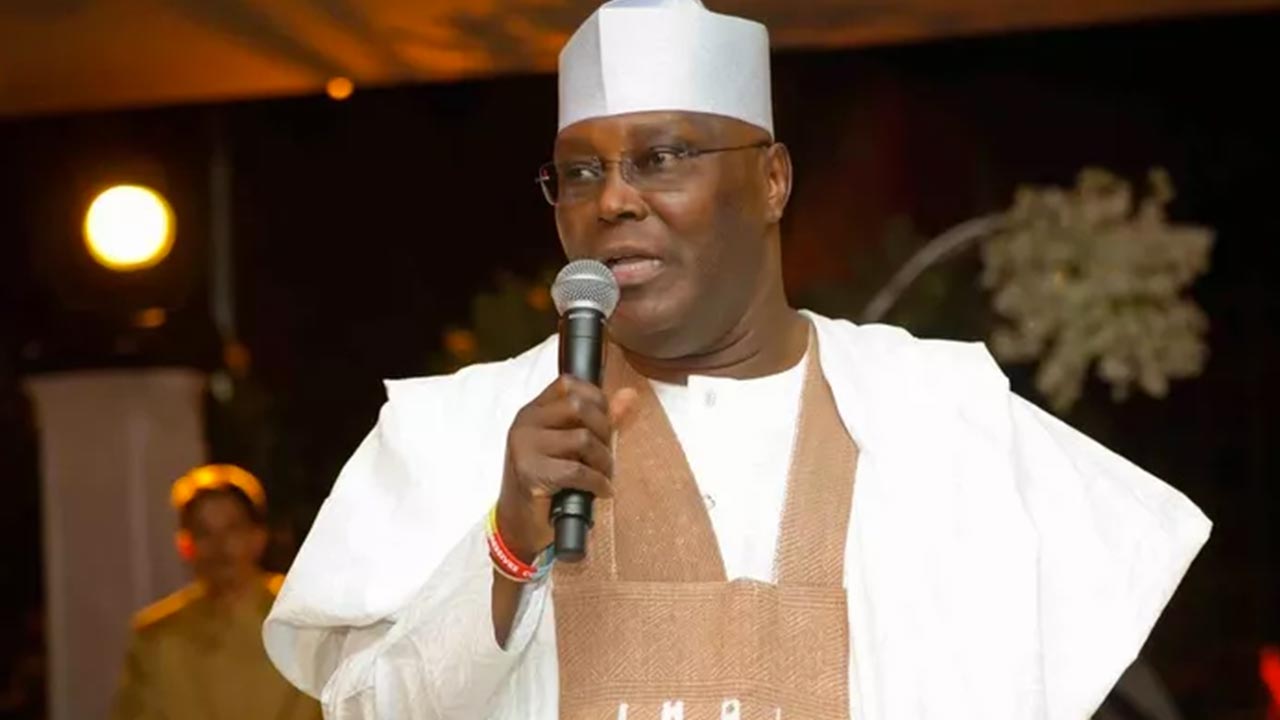•Says national oil firm is corruption-ridden
•Insists Nigeria should not be handed over to inexperienced hands
•Promises to restore Nigeria’s leadership role in Africa
The Peoples Democratic Party (PDP) candidate in the 2023 presidential election, Alhaji Atiku Abubakar, has reiterated his promise to ensure the full privatization of the Nigerian National Petroleum Company Limited (NNPCL) if elected.
The former vice president who spoke with News Central, an online television station, explained that as it is, although the Muhammadu Buhari administration has said it has commercialized the NNPCL, all its shares are still being fully held by the government.
Atiku insisted that until the ownership of the national oil firm is diluted and the NNPCL has its shares traded on the floor of the Nigerian Stock Exchange, it will continue to be mismanaged.
He stated that he had always believed that the oil sector has to be privatized because it’s the best way to get the best out of it, insisting that it was not the responsibility of the government to manage the country’s oil and gas.
“You can compare the Nigeria LNG project which we are in partnership with the private sector and see the returns we get compared with the NNPC which is solely run by the government.
“First of all, there’s a lot of corruption there. Definitely, it is better to privatize. Before the election, I advocated the privatization of the NNPC. They accused me of wanting to give it to my friends, only for them now to turn around to say they are privatizing.
“Of course, they have set up the structures but they have not done the actual privatization because they have not gone to the stock market. Up till now, all the shares are being held by the NNPC and nobody has any shares there.
“So, in theory, they have announced that they are privatizing but that has not been implemented,” he said.
SEE ALSO: Lagos Parking Authority Is Illegal – Falana
Atiku explained that as a developing country, experience and competence remain key elements in leadership, maintaining that the country cannot be handed over to rookies.
“Nigeria has tremendous challenges and it’s quite diverse and you can’t hand over such a country to untested leadership,” he posited.
He stated that part of Nigeria’s biggest problems remained a lack of continuity in government policies, noting that there’s always the tendency to reverse achievements recorded by the previous administration.
He argued that for continuity’s sake, some of the policies should be legislated so as to prevent a reversal of fortunes for a developing country like Nigeria.
Atiku noted that a lot of things were encouraging insecurity in the country, including unemployment and a dysfunctional education system where funds deployed to states and local governments are misappropriated.
He expressed worry over the out-of-school children all over the country, expressing frustration that the states and local councils were not doing enough to reverse the trend.
Atiku stated that if elected, he would recruit massively into the police force and ensure their training and retraining, drawing a parallel between Nigeria and Egypt which has over 3 million policemen, and Nigeria with less than 400,000.
He also advocated the deployment of technology in policy like it is done in the United Arab Emirates, which he said has mastered the act of using technology for effective policing.
“ This is possible because we are more educated than the UAE. Our literacy level is more advanced. So, what other qualification does it require to handle technology?” he asked.
On the provision of electricity, Atiku said that Nigeria has to decentralize the generation and transmission systems, stressing that the almost sole reliance on gas where other power sources like hydro dams remain unutilized was unacceptable.
According to him, coal was deployed in the early days of Nigeria as a source of energy in the south while the north was supplied by the hydro dams.
The former vice president insisted that when there is enough power generation without the wheeling capacity of the transmission arm, there will be problems of incessant equipment breakdowns.
He noted that having conducted a feasibility study on the matter, he was convinced that it is possible for Nigeria to have reliable power within the shortest possible time.
On the ongoing efforts at reconciliation in the party, he said the disagreements were not unusual, promising that nobody will be discriminated against as everyone will be brought together ultimately.
On the sub-region, he stated that Nigeria is no longer the beacon as it used to be in West Africa, promising that if elected Nigeria’s leadership role on the continent will be restored.













